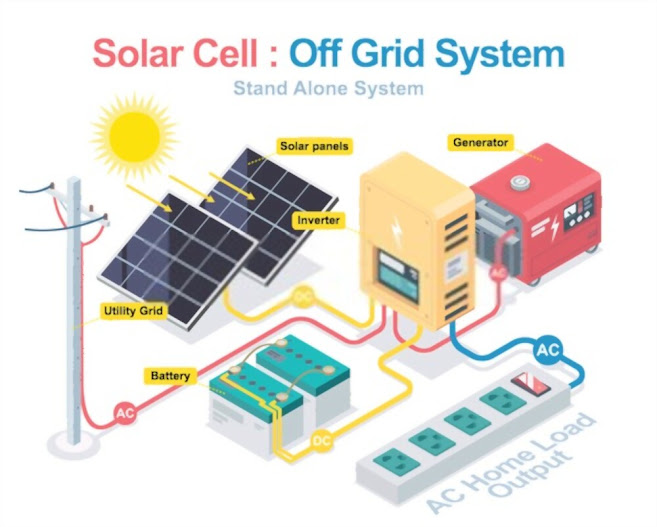Residential Solar Supplier Baytown TX
The efficiency of a solar panel simply describes how well it turns sunlight into usable electricity. These days the average efficiency of a solar panel is about 18.7 percent. This means that, under ideal conditions, 18.7 percent of sun waves that hit the panels will be converted into usable electricity. Efficiency levels affect how much solar panels cost in residential solar supplier Baytown TX.
The energy that a panel can produce will vary by its location and its available sunlight, but, in general, most home solar panels have power output ratings ranging from 250 to 400 watts, with an average of about 320. The number of panels you need will depend on the efficiency of the panel plus the electricity your home requires.
Mono-crystalline solar panels tend to be more efficient than poly-crystalline solar panels, and both mono-crystalline and poly-crystalline solar panels tend to perform better than thin-film solar panels. There are many different solar panels on the market—each with their own benefits and disadvantages. Solar panels used for the rooftop solar market are less varied, but there are still considerable differences between each brand.
A solar panel efficiency calculation is simply the conversion rate used to measure how much of the sun’s rays a panel can convert into usable energy. Specifically, it is the portion of energy from sunlight that can be converted into electricity. Manufacturers figure this out by multiplying the incident radiation flux, or the amount of available sunlight in your area based on standard testing conditions (STC) t by the area of your panel in square meters. The panel’s maximum wattage is divided by this number and then multiplied by 100 percent to calculate solar panel efficiency.
The efficiency of a solar panel is determined by a variety of factors. The average home can easily be powered by a solar array with 14–18 percent efficiency, so a better efficiency rating isn't the sole important qualification. Outside of manufactured factors, like efficiency, power ratings and degradation rates, there are a variety of external factors that can affect the performance of your solar panels:
To compile this rating, we’ve reviewed commercially-available solar array models from major panel manufacturers.
But before we jump into the numbers, a heads up: the importance of solar panel efficiency is often over-hyped by manufacturers looking to charge a premium price for the most efficient modules.
Solar panel efficiency doesn't measure total output — just the space required to supply a unit of wattage. In other words, a high efficiency panel rated 300 watts will produce — all else equal — an equivalent amount of power as a 300 watt panel with lower efficiency. The only difference is that the more efficient panel will use slightly less space.
Of course, there are some situations where efficiency matters; for example, if you have a very small roof. If that's you, getting the panels with the highest efficiency will allow you to maximize solar output in the limited space available to you in residential solar supplier Baytown TX.
The energy that a panel can produce will vary by its location and its available sunlight, but, in general, most home solar panels have power output ratings ranging from 250 to 400 watts, with an average of about 320. The number of panels you need will depend on the efficiency of the panel plus the electricity your home requires.
Mono-crystalline solar panels tend to be more efficient than poly-crystalline solar panels, and both mono-crystalline and poly-crystalline solar panels tend to perform better than thin-film solar panels. There are many different solar panels on the market—each with their own benefits and disadvantages. Solar panels used for the rooftop solar market are less varied, but there are still considerable differences between each brand.
A solar panel efficiency calculation is simply the conversion rate used to measure how much of the sun’s rays a panel can convert into usable energy. Specifically, it is the portion of energy from sunlight that can be converted into electricity. Manufacturers figure this out by multiplying the incident radiation flux, or the amount of available sunlight in your area based on standard testing conditions (STC) t by the area of your panel in square meters. The panel’s maximum wattage is divided by this number and then multiplied by 100 percent to calculate solar panel efficiency.
The efficiency of a solar panel is determined by a variety of factors. The average home can easily be powered by a solar array with 14–18 percent efficiency, so a better efficiency rating isn't the sole important qualification. Outside of manufactured factors, like efficiency, power ratings and degradation rates, there are a variety of external factors that can affect the performance of your solar panels:
To compile this rating, we’ve reviewed commercially-available solar array models from major panel manufacturers.
But before we jump into the numbers, a heads up: the importance of solar panel efficiency is often over-hyped by manufacturers looking to charge a premium price for the most efficient modules.
Solar panel efficiency doesn't measure total output — just the space required to supply a unit of wattage. In other words, a high efficiency panel rated 300 watts will produce — all else equal — an equivalent amount of power as a 300 watt panel with lower efficiency. The only difference is that the more efficient panel will use slightly less space.
Of course, there are some situations where efficiency matters; for example, if you have a very small roof. If that's you, getting the panels with the highest efficiency will allow you to maximize solar output in the limited space available to you in residential solar supplier Baytown TX.





Comments
Post a Comment